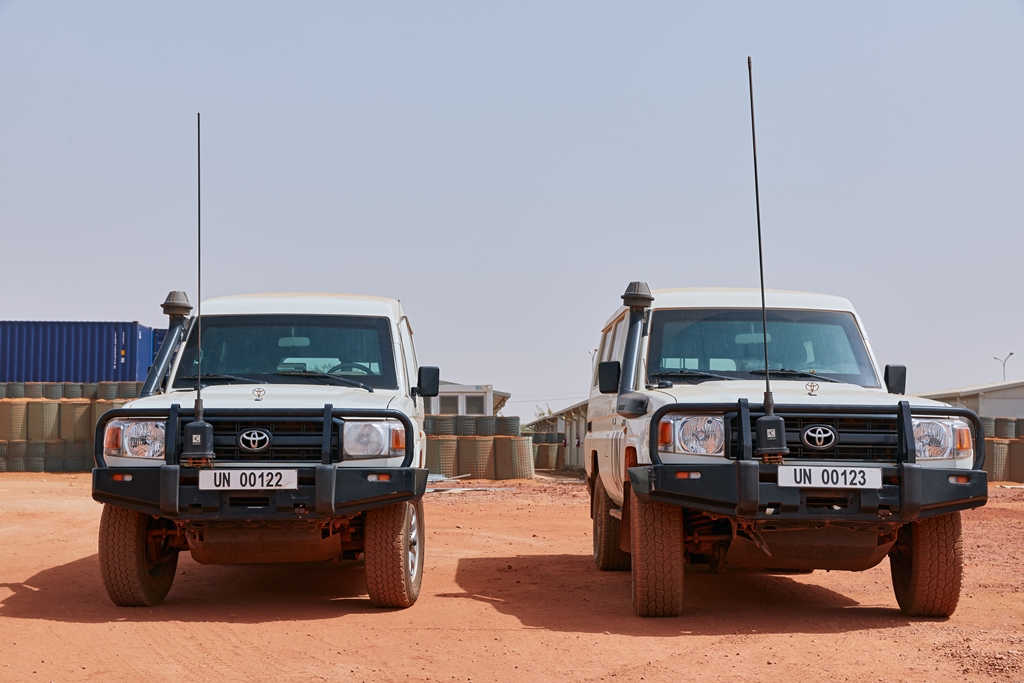Car bomb injures 15 UN peacekeepers in northern Mali
[ad_1]
KABUL: Afghanistan defended on Sunday its controversial decision to arm nearly 30,000 people to help troops prevent the Taliban from achieving further territorial gains, which began with the gradual withdrawal of US-led forces from country on May 1.
“These are spontaneous local uprising forces to help the national security and defense forces against the Taliban because these terrorists have committed brutality in the captured areas,” ministry spokesman Tariq Arian told Arab News on Sunday. inside.
He said these armed groups were not militias and would operate “under the control” of the security sectors.
“We are not afraid that they will become a threat but, if they act against the spirit of the security forces, we will prevent that.”
Government resources for those who wish to join the “national mobilization†initiative are channeled through faction and ethnic leaders, some of whom are accused of heinous crimes.
The faction militia leaders have repeatedly challenged past governments, including the administration led by President Ashraf Ghani, which pushed for the creation of a “united front” and supported local forces to strengthen peace and “Safeguard the Republic System” at a meeting with former anti-Soviet and anti-Taliban figures last week.
Arian added that 30,000 residents had either “unearthed their weapons” or received weapons and resources from Kabul. They belong to various regions where the predominantly ethnic Pashtun Taliban have taken dozens of districts from troops in recent weeks.
Defense Ministry spokesman Fawad Aman said most of the “volunteers” came from the north, where the Hazara ethnic group and Uzbek warlord loyalists prevented the Taliban from capturing the area there. has more than two decades.
Thousands of militants were slaughtered and an equal number of Taliban were reportedly left suffocating in sea containers after surrendering to militias during a US-led invasion in 2001.
“The number of these people is increasing,” Aman told Arab News. “These are educated people who took up arms against the Taliban, and we can call them volunteers. “
The two officials said the process of providing weapons and resources to residents “was not out of control” and would not lead to another era of civil war similar to the 1990s after the Soviet forces withdrew from Afghanistan.
The Taliban were not available for comment when contacted by Arab News on Sunday.
They have stepped up their attacks in recent months, taking advantage of the reduced number of foreign forces as part of an ongoing withdrawal process that ends on September 11.
The Taliban have invaded some strategic neighborhoods in the north, notably in Kunduz where nearly 5,000 Afghan families have fled their homes after days of fighting between the Taliban and government forces, according to media reports. There were also reports of an escalation of attacks in Kandahar and Baghlan provinces.
Ghani replaced his security chiefs last week amid increased Taliban gains, with new Defense Minister Bismillah Khan Mohammadi calling on “patriots and people around the world to stand by their security forces and defense, “while ensuring government support to” provide all equipment and resources. “
Some parliamentarians supported the decision to arm residents, while others expressed concern over providing them with resources through militia leaders.
Mohammad Ibrahim Gheshtelai, an MP from the southeastern province of Paktia, explained why the initiative was a win-win for all.
“The nation had the desire to defend the country,†he told Arab News. “This is why they took up arms by welcoming the government’s proposal. The government has found a good source to defend the system. It is good for the survival of the system. The majority in parliament supports this, and there is no serious concern about it. “
However, Ghulam Wali Afghan, a lawmaker in the southern province of Helmand, told Arab News that Kabul must ensure that resources are not “abused by thieves, human rights abusers and criminals” otherwise, it would be the civilians who would suffer the most.
Some critics have warned that relying on former ethnic militia leaders and informal local fighting groups could further weaken Kabul’s control over the military effort and risk a revival of “abusive and predatory behavior by the leaders.” of war â€against the story of which Ghani came to power in 2014.
“It is quite clear that the immediate and long-term threat posed by the militias is certain,” Zabihullah Pakteen, a political affairs analyst based in northern Afghanistan, told Arab News. “However, the government has no choice but to opt for militias to stand up against the Taliban. A real public uprising and militias are two different things, but we don’t see a mass public movement to counter the Taliban. “
Others pointed to the “dangerous†precedent set by the government, including ethnic leaders.
“The uprising movement, or the creation of militias, is very dangerous for the present and the future of Afghanistan,” said Nasratullah Haqpal, a Kabul-based political affairs expert, as several ethnic leaders had committed brutalities during the civil war in the past. “The public is worried about this. Leaders benefit from this process, and it can fuel ethnic tensions, and it must stop, â€he added.
In recent weeks, the Taliban have sharply criticized the government’s deployment of local groups, calling them “arbakis” or notoriously abusive former local militias, and accusing them of “fanning the flames of war” to maintain a grip on Power.
They also warned that these groups would be treated “austere” by the Islamic authorities.
[ad_2]

